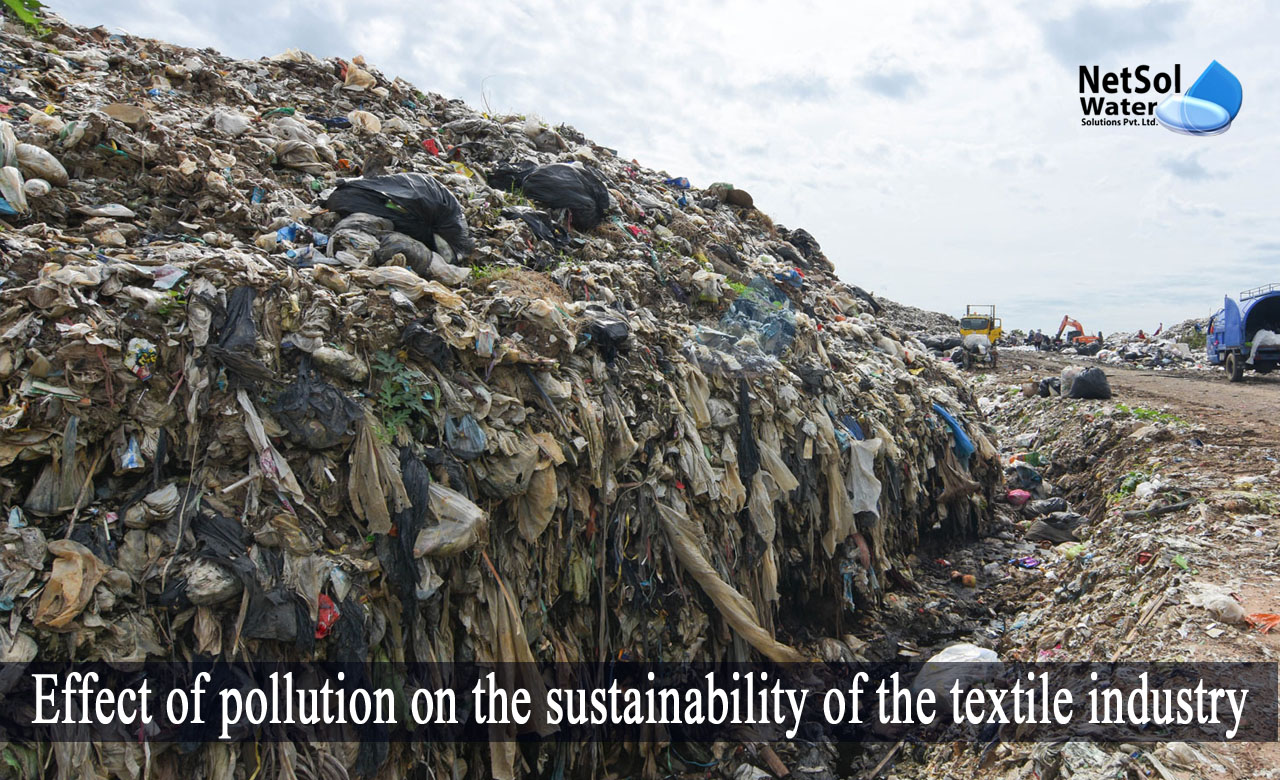What is effect of pollution on sustainability of textile industry?
Textile is an essential component of our daily lives. It will always be a requirement; hence uninterrupted manufacturing is required to supply the need. The textile sector, like many others, pollutes the environment by creating wastewater.
The textile business consumes a lot of water, which leads to a lot of wastewater. The presence of a lengthy number of dangerous contaminants in wastewater, causes widespread water contamination. Untreated water releases a variety of harmful substances into the environment, including azo dyes, soda, hydrocarbons, and heavy metals. These are detrimental to our ecosystem and, in particular, aquatic life.
As a result, it is critical to comprehend and assess the impact and effect of pollution, on the sustainability of the textile sector.
Generation of effluent while Textile production
The textile industry is one of the fastest and most complicated manufacturing industrial chains. Several mechanical phases are required in the production of cloth. Mercerizing, dyeing, printing, and finishing are all terminology used to describe the textile production; however, there is a significant connection between dry and consecutive wet process treatments.
From all phases of fiber, fabric, and garment processing production, the textile sector emits a vast spectrum of pollutants.The biggest environmental problem for the textile industry, is the volume of water emitted and the chemical load it carries.
As a result, water is used extensively in the textile business. Water is utilized throughout the production process to clean the raw materials, as well as for several flushing procedures.
Water is largely utilized for
· applying chemicals to textiles,
· washing clothes,
· rinsing synthetic fabrics.
The amount of water consumed by various types of textiles varies based on the dyeing process, and the type of cloth produced. In reality, it has been revealed that 38% of water is consumed in the bleaching process, 16% in dyeing, 8% in printing, 14% in boilers, and 24% for other purposes.
As a result of numerous processes, large volumes of dirty water are emitted. The fact is that the water discharged after textile production exceeds the norm, and includes a high concentration of hazardous dyes and other chemicals.
The significance of wastewater treatment(WWT) in the textile industry
Textile effluent treatment plants for the textile industry must treat wastewater, resulting from chemically treated textiles.
Impurities in dyes and pigments are decreased by utilizing chrome mordant dyeing and limiting copper, chromium, and nickel emissions into water.
Dyeing carriers using chlorine should be avoided. Bleaching substances that are less hazardous can be used instead.
Conclusion
Given the size of the textile industry, which is one of the largest in the world, sustainability is not only an essential concept; corporations may have a huge environmental, economic, and social impact.
The concept of sustainability is frequently illustrated by the concept of reducing, reusing, and recycling, which encourages individuals and businesses to conserve resources, such as water, land, and oil; reuse products such as a refillable water bottle; and recycle materials such as paper, glass, and aluminium.
The textile industry prioritizes sustainability for a variety of reasons, including cheaper pricing, environmental preservation, and long-term customer support for eco-friendly processes, and many advanced treatments to support sustainability in textile production.
Manufacturers of sustainable ZLD plants and Effluent treatment Plants for the textile sector
Netsol Water offers a variety of solutions to treat the textile industry’s wastewater or effluent. We offer sewage treatment plants, and effluent treatment plants in which many processes are included, like adsorption, activated carbon, MBBR, MBR, aeration, and membrane processes. Along with this, our treatment plants include the specific chain process like equalization, sedimentation, clarification, coagulation, pH control, sludge management, ZLD, and etc.
Netsol Water is Greater Noida-based leading water & wastewater treatment plant manufacturer. We are industry's most demanding company based on client review and work quality. We are known as best commercial RO plant manufacturers, industrial RO plant manufacturer, sewage treatment plant manufacturer, Water Softener Plant Manufacturers and effluent treatment plant manufacturers. Apart from this 24x7 customer support is our USP. Call on +91-9650608473, or write us at enquiry@netsolwater.com for any support, inquiry or product-purchase related query.



